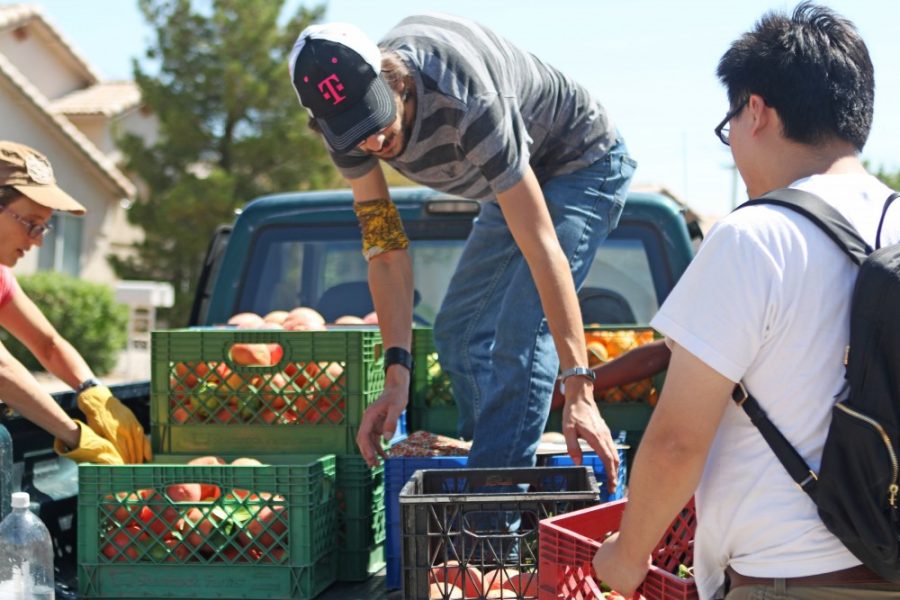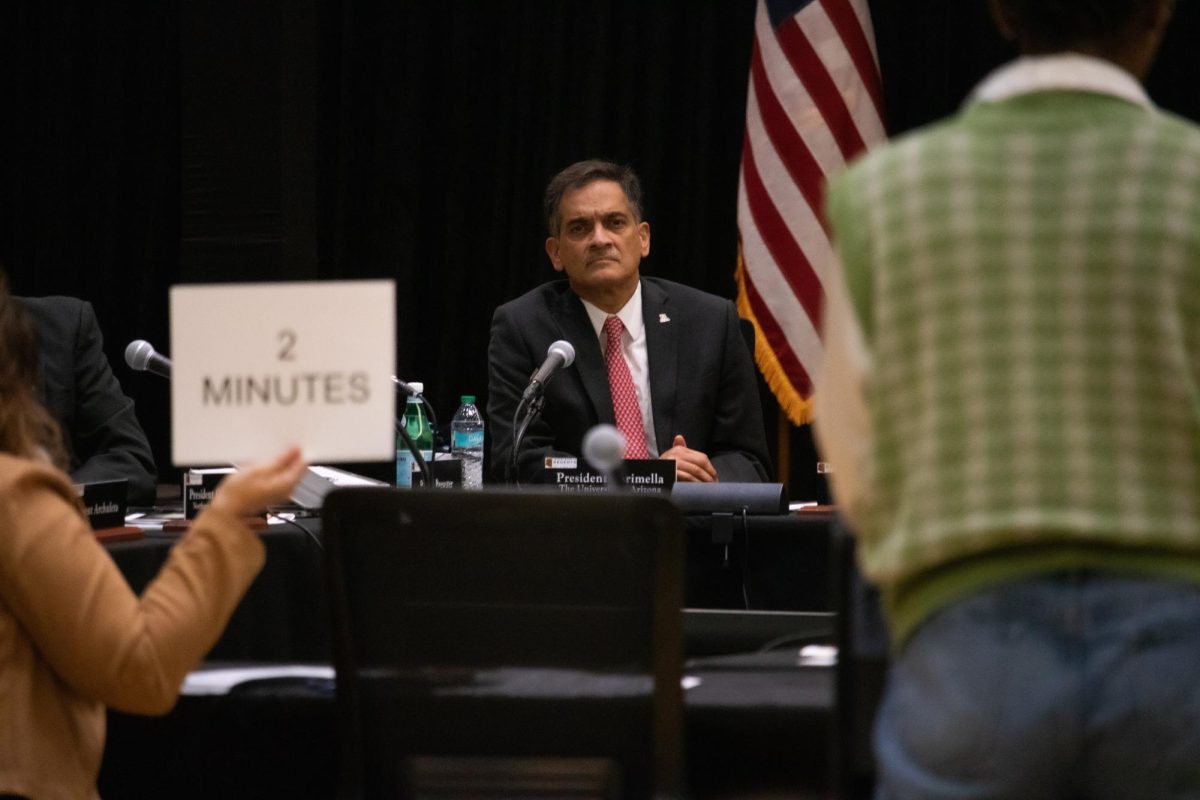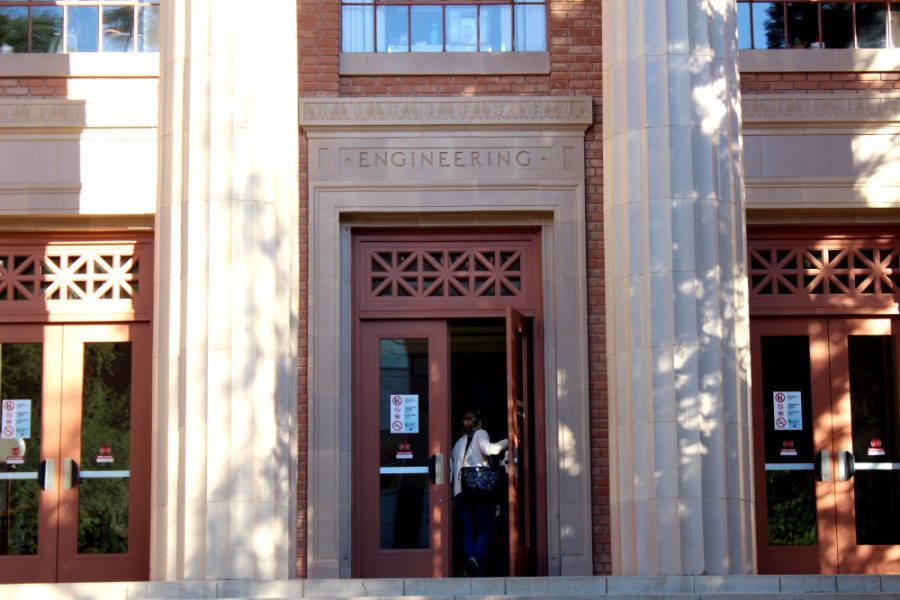For seventeen years, the Iskashitaa Refugee Network has been harvesting, distributing and preparing food from the yards of local businesses and homeowners.
Micah Hadley, harvesting coordinator, said the program has three main focuses; the primary goal regards community, and the other two focus on food-related issues.
“First and foremost, it’s about reintegration, reintegrating people into a new life here,” Hadley said. “It’s also reducing food waste and increasing food security.”
The name itself points to those goals. Iskashitaa is a Somali and Maay Maay word meaning “working cooperatively together.” Maay Maay is the language of the Somali Bantu ethnic minority.
The program started in 2003, when Barbara Eiswerth, founder and director, recruited refugee students to help identify areas of local produce waste. They then harvested and redistributed the otherwise-wasted foods. Eventually, the program received a grant from United Way of Tucson and is now operating under the fiscal umbrella of St. Francis in the Foothills University Medical Center, a federal 501c3 organization.
RELATED: Refugees, advocates give context to immigrating to US
Since then it has grown in both range and creativity, Hadley said.
“We’ve not only expanded the diversity of harvests we’re doing, but the sheer amount of harvests,” Hadley said. “We’re swimming in citrus. Yesterday we harvested 1,500 pounds of grapefruit and it’s not like you can just use all that. There’s stuff left over.”
That excess is where the creativity comes in. Hadley said when he first started working at Iskashitaa three years ago as an intern, they candied and jarred citrus rinds. Now, that initial project has expanded to produce a variety of goods.
“That’s a really cool part of our programming that can grow, adding value,” Hadley said. “We have lots of value-added goods that we’ve been able to sell at different markets in Tucson.”
Amelia Natoli, a lead harvester at Iskashitaa and an archeologist, volunteered intermittently for about three years and started volunteering consistently last August, helping with the Wednesday and Friday harvests.

“It’s a good way to connect refugees and help them integrate into the community, and it’s a way for people to feel like they’re helping,” Natoli said. “You don’t have to be an expert; you don’t have to be a social worker.”
Reducing food waste and increasing access to healthy food is an aspect of the organization that, according to Natoli, is very important.
“It’s food that is immediately accessible, that otherwise people wouldn’t be using,” Natoli said. “It’s connecting it with people who need food, especially fruit and vegetables, because if you’re on food stamps, you’re not going to necessarily be using them for fruit, but you need healthier options.”
While the volunteers try to reach three or four locations each harvest day, Natoli said some days, they are limited simply by van space.
“Sometimes we’ve had lemon or grapefruit trees that fill up the entire van, we just get so many,” Natoli said. “We haven’t even scratched the surface of how many fruit trees are out there, and we’re limited by the process of redistributing the food.”
RELATED: ‘I don’t have a place in my heart for Somalia right now’
The food is distributed amongst apartment complexes and food banks, according to Natoli.
Hadley said capacity and flexibility are the organization’s two biggest challenges.
“Being a really small nonprofit, we have a really small capacity, which results in really tight time frames, so flexibility is a challenge,” Hadley said. “I’m really happy we’ve got people in the office who are 110 percent enthused about what we’re doing. It’s so necessary.”
Connie Grinnell, a homeowner who had Iskashitaa come and harvest loquats and grapefruits from her trees, said Hadley knocked on her door and asked if the organization could harvest the fruits.
“We have so much fruit, I’d rather have them pick them and give to a good cause, rather than the birds get them,” Grinnell said. “I’d do this again if we have the fruit and it they come back and ask. We just have so much.”
Natoli said volunteering has taught her about different types of fruits she might not have known about otherwise.

“I was more familiar with native Tucson trees, but I didn’t know much about some of the things that have been cultivated here,” Natoli said. “I’m still learning about date harvesting, which is an interesting process.”
Hadley said food preparation workshops will start again in June, allowing different people to share their knowledge and recipes.
“People bring a million different recipes to the table and you learn a bunch of different uses you never knew about, or how to use a part of a plant you didn’t think could be used,” Hadley said.
Hadley said that he’s met people from at least 17 different countries, and while that can be a challenge, it is also what makes the job worth it.
“It’s just the nature of the beast that you deal with people coming from a million different cultures,” Hadley said. “It’s a really cool diversity that makes our jobs really dynamic, and that’s a good challenge to have. It brings a plethora of benefits.”
Follow Marissa Heffernan on Twitter.









